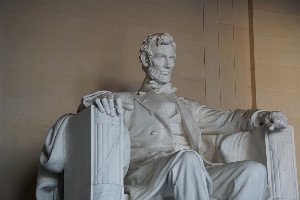Emmanuel Olorunleke Adesanya, Afolabi Kayode Ojo Ojo, Shuaib Suleiman Bature, Jimoh Saidu Bolakale Bolakale
Cultural-beliefs’ influence on students’ learning of livestock production in Ogun State, Nigeria
Introduction
Cultural-beliefs’ influence on students’ learning of livestock production in ogun state, nigeria. Discover how cultural beliefs, including taboos and superstitions from parents and peers, significantly influence senior secondary students' livestock production learning in Ogun State, Nigeria.
Abstract
The culture of students often influences how agricultural topics are learned. This study examined the impact of cultural beliefs senior secondary school agriculture students held on their livestock production learning in Ogun State, Nigeria. The study employed a survey research design guided by four research objectives. The population consisted of all senior secondary school agriculture students in Ogun State, and a multi-stage sampling technique was used to select participants. Data were collected using a researcher-designed questionnaire and analysed using mean and standard deviation. The findings revealed that parents, peers, and traditional religious leaders are the primary sources of students’ cultural beliefs. These beliefs, often expressed as taboos, rituals, and superstitions, significantly influence students’ learning of livestock production. To address this, sensitising teachers about the interaction between cultural beliefs and the teaching of scientific principles is recommended.
Review
This study offers a pertinent exploration into the often-overlooked yet critical intersection of cultural beliefs and agricultural education, specifically focusing on senior secondary school students' learning of livestock production in Ogun State, Nigeria. Utilizing a survey research design, the authors effectively set out to quantify the impact of students' cultural predispositions on their academic acquisition of scientific principles. The research contributes significantly to the understanding of how socio-cultural contexts shape educational outcomes, particularly in fields where traditional practices and modern scientific knowledge may diverge. The findings provide valuable insights into the primary conduits through which these cultural beliefs are transmitted, identifying parents, peers, and traditional religious leaders as key influencers. Crucially, the study elucidates that these beliefs, often expressed as deeply ingrained taboos, rituals, and superstitions, exert a significant and demonstrable influence on students' capacity to learn scientific livestock production. This highlights a fundamental challenge for agricultural educators, where inherited cultural frameworks can either impede or fundamentally alter the assimilation of modern scientific agricultural practices. While the study effectively identifies the problem and recommends teacher sensitization as a necessary step, a more nuanced understanding of *how* these beliefs specifically interfere with or alter learning processes could be beneficial. Future research might benefit from qualitative explorations to delve into the specific pedagogical challenges teachers face and the cognitive mechanisms through which students reconcile or compartmentalize conflicting information. Additionally, practical strategies for integrating cultural awareness into curriculum development and classroom instruction, beyond mere sensitization, would further strengthen the applicability of these findings. Overall, this paper serves as an important call to action for educators and policymakers to acknowledge and strategically address the profound impact of cultural heritage on scientific education.
Full Text
You need to be logged in to view the full text and Download file of this article - Cultural-beliefs’ influence on students’ learning of livestock production in Ogun State, Nigeria from Indonesian Journal of Curriculum and Educational Technology Studies .
Login to View Full Text And DownloadComments
You need to be logged in to post a comment.
Top Blogs by Rating
Genetic Dark Matter: The Unsee...
By Sciaria
The Invisible Hand of Defaults...
By Sciaria
Beyond the Forbidden: When His...
By Sciaria
Favorite Blog
The Uncomfortable Truth: Why G...
By Sciaria
Is Electro Music the New Class...
By Sciaria
Reclaim Your Day: Mastering th...
By Sciaria





